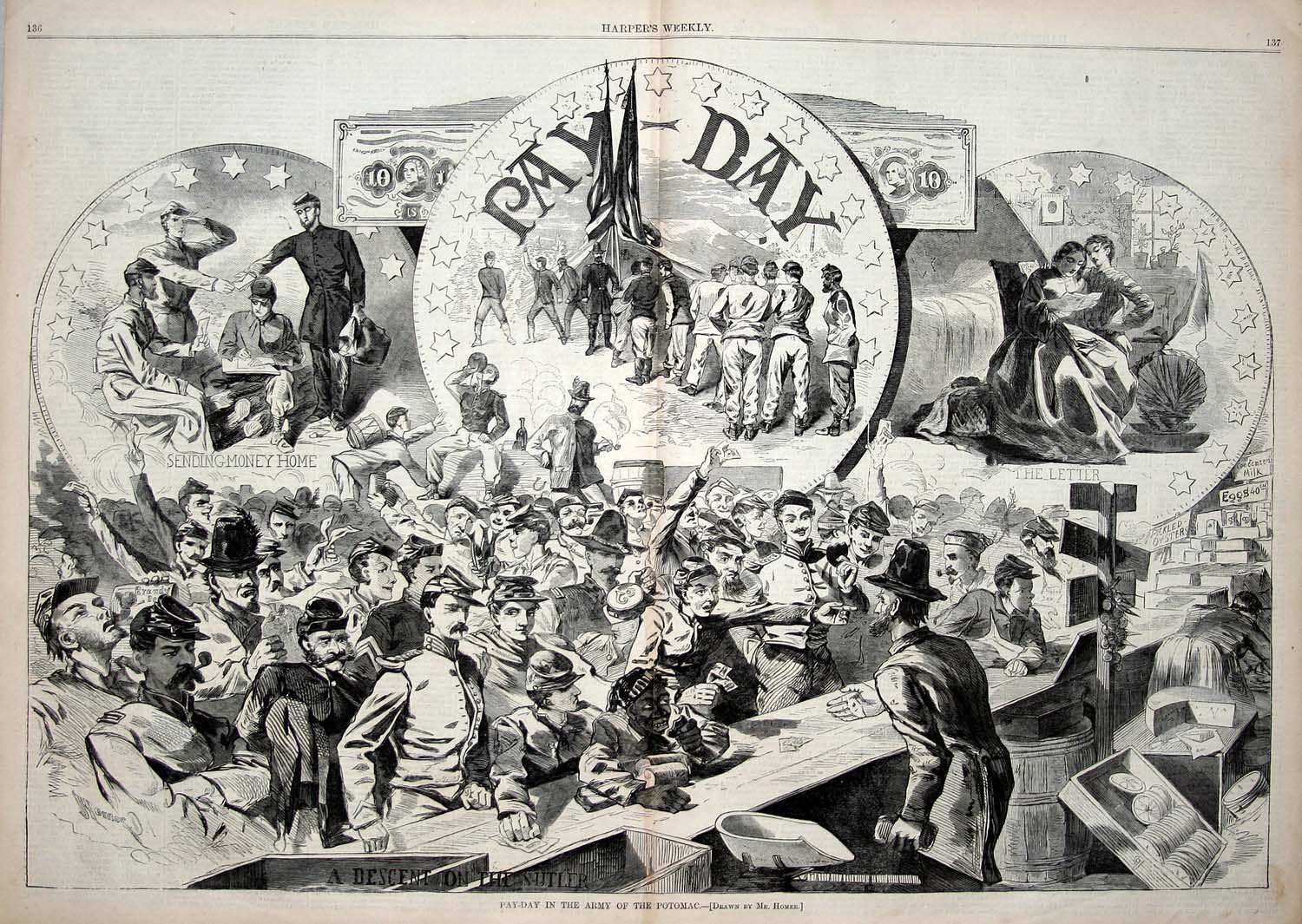What do you tell the “butcher and baker, and kerosene seller”?
It is said that pay in the Union army was usually behind schedule. Here a soldier’s wife explains the issue on the home-front and shows that the army would probably more effective (with possibly fewer desertions?) if soldiers did not have to worry about the financial situation of their families. She closes with an appeal to the power of the press – “H.J.R.” was Henry Jarvis Raymond, founder of The New-York Times and a bigwig in Republican politics.
From The New-York Times November 28, 1862:
Soldiers’ Pay–An Appeal from the Wife of a Soldier.
To-the Editor of the New-York Times:
May a woman be allowed to ask if no means can be devised of paying the soldiers more promptly?
To the poorer class, who can come forward and claim the State pay, which is disbursed often and liberally, the tediousness of waiting for a “soldier’s package, supposed to contain,” may not seem so great a trial. But there are hundreds to whom Government pay would be all sufficient for the maintenance of their families, could they but receive it oftener and regularly.
How painful it must be to the loved ones we have sent forth with a “God-speed” to the good cause, to write home again and again, “We are expecting the Paymaster every day.” “We are to be paid on the 15th.” “We hear the Paymaster is coming next week, sure,” &c., &c. These assurances to be again repeated by us to “butcher and baker, and kerosene seller,” raising their hopes only to be blasted many times, like our own. I do not speak of these trials as endured by the immaculate shoulder-strap gentry who [???] get to Washington, and, understanding how to unwind “red tape.” to the pay department. and are resplendent with bran-new “greenbacks,” but of those officers in particular who are at their posts, encouraging “the boys” that “the Paymaster will be here in a little while, now” — men who will be, aye, and have been, true soldiers, but who know that duty would be more cheerfully performed, could they feel “all right about home.”
Many of the regiments at Suffolk, for instance, have received no pay for over four months, and I know of families who are sufferring for these very means, but who feel no right to ask for the State aid, only asking for their own honestly earned pay.
And now, when we are looking for “forward movements,” and skirmishing and great battles, and praying. each one in the selfishness of our [???], that our loved ones may be spared, is not this anxiety heightened [???] to these who are forming in line of battle, and to us who only watch and wait, by the thought of [???] poverty that would follow disaster?
Of course, in time, by studying out the proper channel in which to make application, one could receive all “arrears of back pay,” but, I repeat, it would not prevent immediate want. Before another stop is taken, surely every man should be paid, and our soldiers would “forward to Richmond,” with lighter hearts, and there would be heavier purses in some of these far away homes.
Cannot “H.J.R.” bring this neglected (?) matter before the powers that be?.
Many would sincerely thank him for his influence, and none more sincerely than
A SOLDIER WIFE.
CAMBRIDGE, Nov. 24, 1862.
The following is an illustration by Winslow Homer in the February 28, 1862 issue of Harper’s Weekly (at Son of the South).

